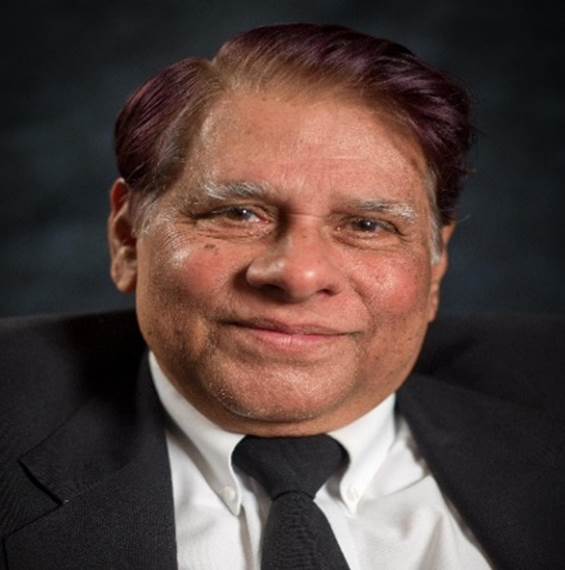
Retired Physicians Become First Muslims with Texas University Building in Their Name
By Maya Gayler
AMT Reporter
The University of Texas at Dallas (UTD) honored the contributions of Dr. Basheer Ahmed and his wife Dr Shakila Ahmed in a dedication ceremony that named an auditorium after them.
In an effort to leave a legacy to inspire generations of students, the Ahmeds donated a million dollars to UTD establishing a Distinguished Chair in the School of Natural Sciences & Mathematics to support its multicultural students in their studies and innovations.

“I always had a desire to support the institutions which promote teachings of sciences and technology,” said Ahmed. “Allah has given me the opportunity to accomplish this goal by supporting UT Dallas which is a great teaching institution and has a great potential to be a top-grade university.”
Basheer Ahmed was a professor of psychiatry at the University of Texas Health Science Center Southwestern Medical School for several years before moving on to serve as the director of the Department of Psychiatry in various Fort Worth hospitals, retiring from the practice in 2005.
A recognized community leader in the DFW area, Dr Basheer helped found the Institute of Medieval and Post-Medieval studies, the Institute of Qur’anic Knowledge and Intra-Faith Religious Acceptance, and the Muslim Community Center for Human Services where he currently serves as Chairman Emeritus.
He married radiologist Dr Shakila Khatoon in 1967, and in 1968 the couple migrated to the United States from Hyderabad, India.
Assistant Dean of the School of Natural Sciences & Mathematics, Dane Richardson says this is the first time the university has dedicated a structure to a practicing Muslim. UTD serves a significant Asian-American student population (32%) and has an international population of 17 percent with students from India, China, Taiwan, Iran and Vietnam.
“He clearly is somebody who is very invested in his community,” said Richardson. “I think he is a great way of showing how you can be grounded in your religion and your values, but still also have great ambitions around your academic and professional interests.”
During the ceremony held last Friday, the Ahmeds were praised for the way they live their faith through acts of philanthropy and keeping an open mind to different cultures and beliefs.

Dr Mustapha Ishak-Boushaki, a UTD physics professor and a long-time friend said that in getting to know Basheer and Shakila, he learned about their values of giving and principles of equality between communities and mutual respect.

“I didn’t know how genuine he was about that, but year after year I see what he does like the events he organizes and the book he wrote,” said Ishak-Boushaki. “It is always about trying to establish mutual respect between different communities.”
Azhar Azeez, the current CEO of Muslim Aid USA and former president of the Islamic Society of North America (ISNA), also highlighted the Ahmeds’ extensive list of organizations they have founded and their efforts to build interfaith relationships.

“They both are shining examples of commitment, dedication and outstanding service to humanity and our beloved community,” said Azeez. “All their life they have strived to build bridges and break barriers.”
Azeez, who has worked closely with the much-loved couple for nearly 30 years, said they have set the standard for which dedication, commitment and service should be modeled after. He attributes their success in remaining relevant through decades to the sincerity of their work to promote science among youth and to facilitate tolerance.
The Dean of the School of Natural Sciences & Mathematics, Dr David Hyndman says the college has been a “crucial anchor” to the institution since the beginning. The Ahmeds’ gift to UTD will fund opportunities for growth in the field of science and mathematics, as well as enable thousands of students to engage in research.

“At the heart of the institution is our commitment to graduating well-rounded individuals of a global community whose education has to prepare them to continue meaningfully as citizens and contribute to society as a whole,” said Hyndman.

